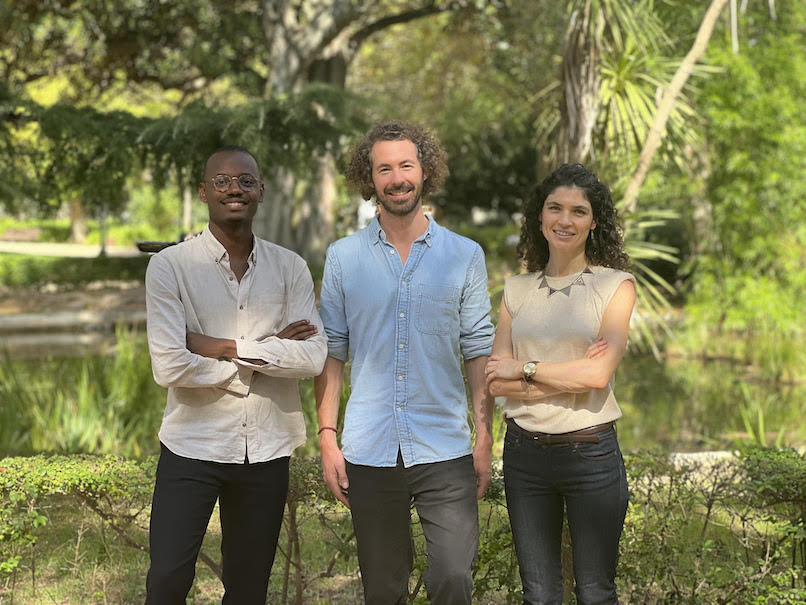
|
|
Thursday, 03 November 2022
|
|
Partners
|

|

|
Good morning!
|
If you had thought they would be the happy wives of the king, lifting each other up when one was down, think again. The players of the burgeoning ride-hailing industry in Africa are made of sharp elbows.
|
In Ethiopia, infighting in the ride-hailing industry has taken a new shape, as one company sought to trademark the word "ride" which is also its name.
|
But even more, a new media report shows that companies are going as far as plugging software in their apps that obstruct drivers from using competitors' apps if their apps are installed on their gadgets.
|
The race to dominate the ride-hailing industry is for startups that punch, hard. The companies have taken the fight to the streets with one accusing the other of "unfair business practices," publicly.
|
|
Below are the tech stories and news you need to know to start your day, carefully curated by Technext.
|
|
|

|
Summary of the news
|
- In Ethiopia, one ride-hailing company filed a trademark for the word "ride"
- DeFI protocols lost over $760m in October
- Satgana targets African climate tech startups with its new €30m raise
- Global fintech funding dropped by 38% in Q3
|

|
Inside the fight to dominate ride-hailing in Ethiopia
|

|
In Ethiopia, the war of the ride-hailing companies is brewing. The race to dominate the market has been heating up as companies take drastic measures to win over both riders and passengers, including one company's attempt to trademark the word "ride."
|
According to one media report, SunPick (a ride-hailing company) accused Feres (another ride-hailing company) of unfair business practices. In the same report, Feres denied having anything to do with the issue and accused SunPick of having stolen confidential data, drivers’ contact lists, and source code from Feres when it hired a former Feres employee. The SunPick app doesn’t currently work. SunPick declined to respond to Rest of World’s questions about its app and current operations.
|
Over the last few years, ride-hailing has become one of the fastest-growing tech-led business sectors in Ethiopia. In the country’s capital, Addis Ababa, more than 30 ride-hailing platforms are available to residents. These companies are fighting for customers and drivers, and seemingly don’t mind crossing each other in the process. But the vast amount of money generated by these companies has also led to a continuous cycle of infighting and lawsuits among local players, including over the use of the word “ride.”
|
“Ride-hailing rivals have overtaken the 40-year-old Lada taxis as a primary mode of shared transport as the city’s rising middle classes opt for convenience, comfort, and better value — interestingly, for a lower price,” Tewodros Tassew, a digital economy expert in Ethiopia, told Rest of World.
|
|
Drivers told Rest of World that as soon as they installed the driver app for SunPick and registered, their Feres driver app stopped working, with “Duplicate Access ID” popping up on their phone screens. Drivers say they had found consistent work on Feres with its large customer base and none wanted to replace it with SunPick. A number of drivers told Rest of World that after they uninstalled SunPick, their Feres app started working again.
|
|

|
A word from our partners!
|

|
Connect with top global businesses by assisting them in integrating Fincra's APIs, and earn money while at it! Ready to make some extra money doing what you enjoy?
|
|

|
DeFI protocols lose $760m in October only
|

|
2022 is on course to be a record year for crypto hacking as a record amount of digital assets were stolen via crypto hacks in October.
|
According to data from blockchain security firm PeckShield released this week, about $760 million worth of crypto was looted by hackers and cybercriminals in 44 incidents that affected 53 protocols in October, Technext reports.
|
However, some of the exploited protocols recovered $100 million, a fraction of that sum within the same period. PeckShield reported that $2.98 billion of crypto assets had been stolen in 2022, almost double $1.55 billion, the total value of crypto stolen in 2021.
|
The biggest exploit of this ‘Hacktober’ was the BNB Chain hack which resulted in a loss of $586 million alone. Earlier in October, the BNB chain executed a hard fork to restore security after an unknown hacker stole $100 million via a vulnerability in the platform’s cross-chain bridge.
|
|
Binance co-founder and CEO Changpeng Zhao (“CZ”) disclosed that hackers accessed a cross-chain bridge where users transfer digital assets from one blockchain to another. The hackers created 2 million BNB tokens out of thin air.
|
|
The PeckShield report listed the Mango Markets Defi protocol as the second biggest loser in October. However, the exploiter agreed to return some of the funds.
|
|

|
Satgana targets African climate tech startups with new €30m raise
|

|
Satgana, a European venture capital (VC) firm headquartered in Luxembourg, has closed a €30 million fund to fund startups that tackle climate change problems in Africa. The fund will do so by investing up to €500K in the pre-seed and seed stages of startups across Europe and Africa.
|
The VC will leverage the network of its team and some of its investors to help founders with direct operational and strategic support, in addition to funding, on issues like impact management, technology development, strategy, hiring, and fundraising. Satgana will concentrate on food, agriculture, energy, mobility, industry, buildings, carbon removal, and the circular economy as it works to decarbonize all areas of the economy.
|
|
|
|
Africa is the most vulnerable continent to climate change, putting its development at systemic risk, despite producing less than 3% of the planet-warming greenhouse gases. The continent is home to 7 of the 10 nations that are most at risk from climate change, including infrastructure threats, food insecurity, floods, droughts, and public health issues.
|
|
TechCrunch reports that so far, the fund has already invested in three climate tech startups, with two others to be announced soon, it says. These are:
|
- Orbio Earth, a German startup building a platform for energy providers to monitor and reduce methane emissions using satellite data.
- Mazi Mobility, a Kenyan startup building a network of electric motorbikes and a battery-swapping infrastructure in East Africa.
- Yeasty, a French startup building an alternative protein leveraging beer yeast with a circular model.
|

|
Global fintech funding drops by 38% in Q3
|

|
The total value of investments into fintech companies worldwide dropped by 38 per cent in the third quarter of 2022, according to the State of Fintech Report for Q3 2022 released by CB Insights last month. According to Technext, this new data reflects a continued decline in fintech funding.
|
According to the latest report, a total of $12.9 billion was raised across 1,160 deals in Q3 2022, representing a 64% drop year-over-year (YoY). It further revealed that this quarter is the sector’s weakest since Q4 2020, bringing the total raised by fintech companies this year to $63.5 billion.
|
Some of the key highlights of the report include the following:
|
- Only 19 mega-rounds worth $100 million were recorded in Q3 2022, which is said to be the fewest since Q2 2018. This figure means the average deal size was down 38% from the full year (FY) 2021. Also, fintech mega-rounds only accounted for 34% of total funding, compared with an average of 66% recorded in 2021.
- For the first time since Q4 2018, Europe surpasses the US in late-stage deal share, drawing 32% of deals, while the US brought in 24%.
- The fintech space birthed 6 new unicorns in Q3 2022, falling below double digits for the first time since 2020. All regions also saw a decline in quarterly unicorn births.
- In Q3 2022, fintech merger and acquisition (M&A) exits declined by 14% QoQ to 155 deals, an 8- quarter low.
- Across all fintech segments, Insurtech recorded the smallest QoQ decline, dropping just 4% from $2.4 billion to $2.3 billion.
|

|
Latest in funding
|
|
|

|
Other stories we are following
|
|
|

|
|
|

|
    
|
|
|
|
|
|